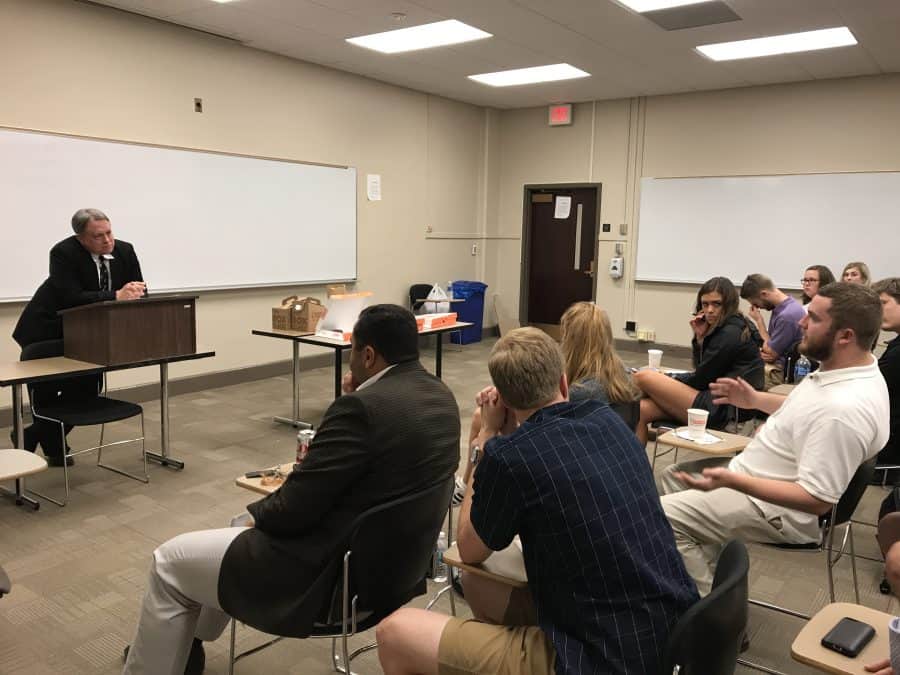A senior fellow at the Cato Institute and former special assistant to President Ronald Reagan, spoke to students about U.S. foreign policy with North Korea and the threat of nuclear weapons on Tuesday night.
The discussion, entitled “North Korea, Nukes and Nuts: Is Donald Trump or Kim Jong-un the More Dangerous Threat?,” was hosted by The John Quincy Adams Society and the Young Americans for Liberty.
Speaker Doug Bandow said that North Korea is seeking status in the world. They are looking to be considered among the most powerful countries and that nuclear weapons help them be taken seriously and gain attention.
“From a North Korean standpoint, nukes do a number of things,” Bandow said. “They give you status and ensure that whatever Kim Jong-un does is shown on the front page of newspapers. What better affirmation could you have that you matter as a country?”
Bandow responded to President Donald Trump’s recent threat to “totally destroy North Korea” if necessary, saying that issuing threats of this nature is counterproductive to achieving peace.
“To me, the best thing to do is shut up,” Bandow said. “The more attention you constantly give [North Korea] is a reinforcement and if there’s nothing serious you can do about them, it doesn’t help much to make empty threats. Unless you’re prepared to follow through, then the more threats you make, the less credibility you have when you might really need to make a threat.”
Zachary Warren, vice president of the Young Americans for Liberty chapter at the University, said that engaging in political discussion helps educate the public and keep them properly informed.
“We’re thrilled to have Doug Bandow come out and it was a great talk with a lot of really good questions,” Warren said. “North Korea remains a complicated issue but hopefully we’ll advance closer to a solution.”
Ben Smith, a senior telecommunications major, said that he came to the event to learn more about the current political climate surrounding relations between the U.S. and North Korea, amid recent threats by the leaders of both countries.
“My friends told me that there was a guy coming to talk about the U.S. policy in relation to North Korea and I thought that sounded absolutely fascinating, so I wanted to hear what he had to say,” Smith said. “Then finding out he was an advisor to one of the former presidents showed that he really knows what he’s talking about.”
Students interested in learning more about the University chapters for Young Americans for Liberty or the John Quincy Adams Society can find them on Facebook.









